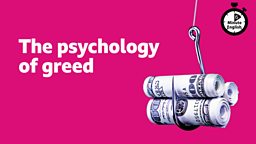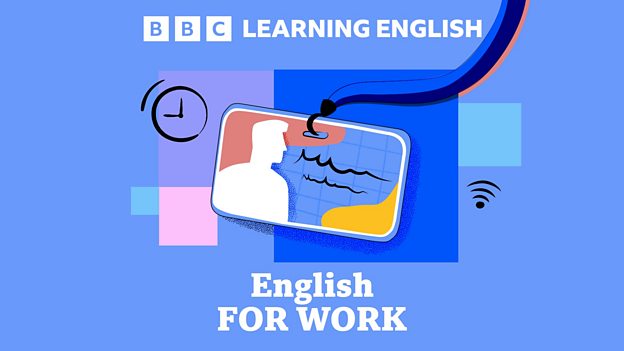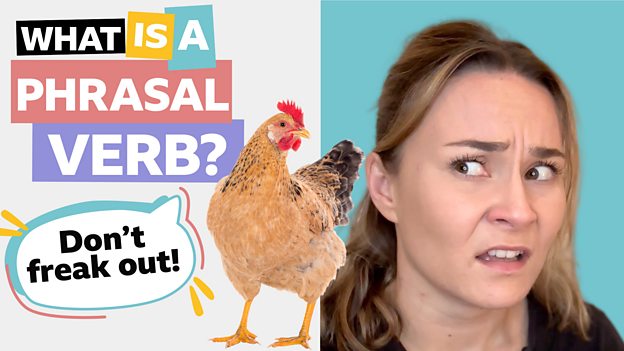6 Minute English
Intermediate level
Nudges: The secrets of persuasion
Episode 240411 / 11 Apr 2024

Introduction
Nudges are something that governments and other companies use to persuade us and influence our behaviour, but are they good or bad? Beth and Neil discuss this and teach you some useful vocabulary.
This week's question
In 2011, what did the local authority in Woolwich, London decide to paint pictures of on shop windows to stop antisocial behaviour?
a) cute kittens?
b) babies’ faces? or,
c) barking dogs?
Listen to the programme to hear the answer.
Vocabulary
profitable
making (or likely to make) a profit; money-making
manky
(slang) dirty; filthy; unattractive; used up
in (someone’s) best interests
the most advantageous, helpful and beneficial thing for someone
paternalistic
making decisions for other people, rather than letting them take responsibility for their own lives
infantilize
treat someone as if they were a child
autonomy
the ability to make your own decisions about what to do, rather than being influenced by someone else or told what to do
TRANSCRIPT
Note: This is not a word-for-word transcript.
Neil
Hello. This is 6 Minute English from BBC Learning English. I’m Neil.
Beth
And I’m Beth.
Neil
Have you ever been sent a text reminding you about a doctor’s appointment? Or impulsively bought something on the internet because there was “only one left”? If any of these have happened to you, then you’ve been nudged.
Beth
A nudge is a subtle way of altering human behaviour. It’s a powerful way for governments, advertisers and social media companies to encourage, or nudge, people into making choices that benefit themselves and society as a whole.
Neil
Imagine the government want people to eat better. It might encourage supermarkets to put healthy snacks in easy-to-reach shelves near the checkout, and hide the chocolate bars out of sight on the top shelf. Shoppers are being nudged to eat better.
Beth
Well… that’s the idea, anyway. But often nudging is used less to benefit society, and more to make money for big business. And it happens more often than people realise. So in this programme, we’ll be asking whether the idea behind nudging - to influence human behaviour for good - is still true today. And, as usual, we’ll be learning some useful new vocabulary as well.
Neil
But first I have a question for you, Beth. Another example of nudging happened in Woolwich, an area of London which in 2011 had a problem with anti-social behaviour, and particularly with shop windows being smashed. The local authority decided to use nudging to fix the problem by painting pictures on the shop windows, but what did they paint? Was it:
a) cute kittens?
b) babies’ faces? or,
c) barking dogs?
Beth
I guess barking dogs would keep the window breakers away.
Neil
OK, Beth, I’ll reveal the correct answer later in the programme. Nudging started in 2008 with the publication of a book by Nobel Prize winning economist, Professor Richard Thaler.
Beth
Professor Thaler’s ideas about how to gently persuade people into making good decisions became known as ‘nudge theory’. Advertising executive, Rory Sutherland, introduced nudge theory to his agency, Ogilvy. Here’s Rory explaining more to BBC Radio 4 programme, Analysis:
Rory Sutherland
Let's say you make the profitable option button green and highly attractive, the less profitable option, you make it kind of grey, and kind of manky looking, okay… That would be an example of something which is, you know, a nudge not necessarily used in the best interests of the consumer.
Neil
Advertisers use colours to nudge customers towards the profitable option, the one which is most likely to make money. These appear brightly coloured and attractive on the screen, whereas less profitable options are made to look manky, a slang word meaning dirty and unattractive.
Beth
Here, nudging isn’t being used for the public good. These ‘dark nudges’, also called ‘sludge’, make money for a company, but are not always in the best interests of the consumer. If something is in your best interests, it’s the most advantageous and beneficial thing for you to do.
Neil
Dark nudges have caused many to question the morality of nudging, including Neil Levy, professor of ethics at Oxford University, speaking here to BBC Radio 4 programme, Analysis:
Professor Neil Levy
The big one, the one people have concentrated on, is that it's paternalistic - that is that nudge might be in our interests but we want to make our own decisions. People worry that nudges infantilize us, it’s undermining our autonomy.
Beth
Critics of nudging call it paternalistic, meaning it wants to make decisions for people, rather than letting them take responsibility for themselves. They also claim nudging infantilizes people, it treats them like children, and, as a result, people lose autonomy, the ability to make your own decisions about what to do, rather than being told by someone else.
Neil
I guess nudging itself is neither good nor bad, it just depends how you use it.
Beth
Well, let’s look on the positive side by revealing the answer to your question, Neil.
Neil
Right, I asked you how authorities in Woolwich, in south-east London, nudged anti-social window breakers to behave nicely.
Beth
I guessed it was by painting pictures of scary barking dogs on the windows…
Neil
Which was… the wrong answer, I’m afraid, Beth! In fact, Woolwich council hired graffiti artists to paint pictures of local babies' faces onto the window shutters. Not even the most hard-hearted criminal smashed those windows, and anti-social behaviour fell by 18% in one year! OK, let's recap the vocabulary we've learned in this programme about nudging, ways of gently persuading or encouraging someone to take decisions.
Beth
Something which is profitable makes a profit, or is likely to make money.
Neil
Manky is slang for dirty and unattractive.
Beth
If something is in your best interests, it’s the most advantageous, beneficial thing for you to do.
Neil
A paternalistic person prefers making decisions for other people, rather than letting them take responsibility for their own lives.
Beth
To infantilize someone means to treat them as if they were a child.
Neil
And finally, autonomy is the ability to make your own decisions about what to do, rather than being told by someone else. Once again our six minutes are up! Remember to join us again next time for more topical discussion and useful vocabulary, here at 6 Minute English. Goodbye for now!
Beth
Bye!
Latest 6 Minute English
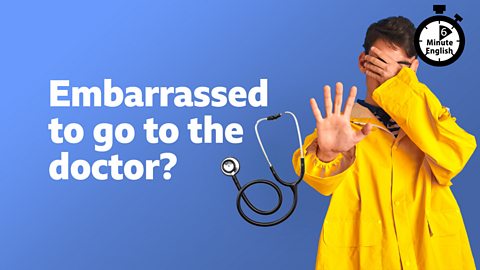
Embarrassed to go to the doctor?
Episode 241226 / 26 Dec 2024
Have you ever been embarrassed to go to the doctor?
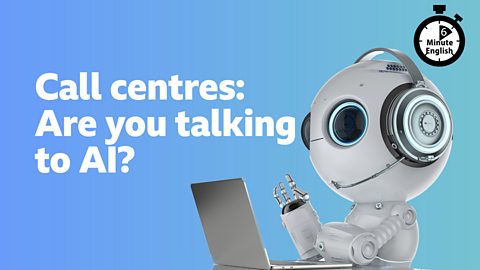
Call centres: Are you talking to AI?
Episode 241219 / 19 Dec 2024
Have you ever phoned up a company and had your call held in a queue? Could AI make this less painful?

Making 'mum friends'
Episode 241212 / 12 Dec 2024
Is making new ‘mum friends’ the positive experience it’s often described as?
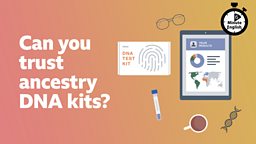
Can you trust ancestry DNA kits?
Episode 241205 / 05 Dec 2024
Are DNA ancestry tests a reliable way to trace your ancestry?

How babies learn to talk
Episode 241128 / 28 Nov 2024
What do babies need to learn to do to be able to talk?
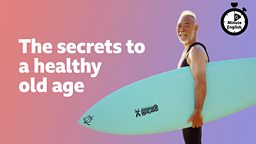

The bond between sisters
Episode 241114 / 14 Nov 2024
Are the stereotypes about older and younger sisters true?


Why you need a good night's sleep
Episode 241031 / 31 Oct 2024
Why is it so important to get a good night's sleep?
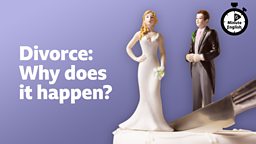
Divorce: Why does it happen?
Episode 241024 / 24 Oct 2024
How is divorce talked about in different countries?

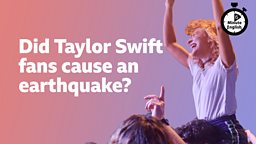
Did Taylor Swift fans cause an earthquake?
Episode 241010 / 10 Oct 2024
Did Taylor Swift move the Earth?

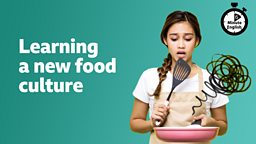
Learning a new food culture
Episode 240926 / 26 Sep 2024
Would you find it different to adapt to a new food culture?

Saving water in the driest place on Earth
Episode 240919 / 19 Sep 2024
How do farmers in the driest place on Earth manage to grow crops? With this solution!
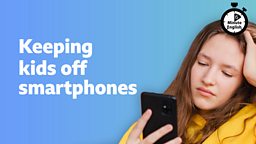
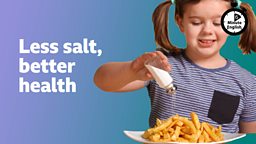

Chocolate: Meet a real Willy Wonka
Episode 240829 / 29 Aug 2024
Would you like to be a chocolate maker, like Roald Dahl's Willy Wonka?
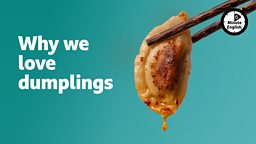
Why we love dumplings
Episode 240822 / 22 Aug 2024
Warning! This episode might make you very hungry...

Kids and climate change
Episode 240815 / 15 Aug 2024
What are young people's thoughts on climate change?


The science of falling in love
Episode 240801 / 01 Aug 2024
What's really happening in our brain when we fall in love?
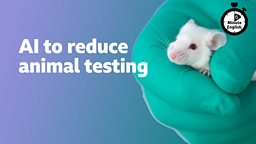
AI to reduce animal testing
Episode 240718 / 18 Jul 2024
Could AI reduce the need for animal testing?

Why read books, not screens?
Episode 240718 / 25 Jul 2024
Why is it better to read from a book than a screen?
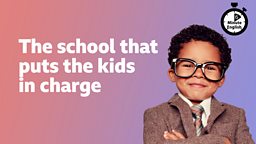
The school that puts the kids in charge
Episode 240711 / 11 Jul 2024
What happens when you put the kids in charge of the school?

What can we learn from toddlers?
Episode 240704 / 04 Jul 2024
Learn to speak to yourself in the way that toddlers do!
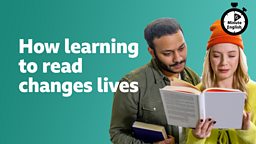
How learning to read changes lives
Episode 240627 / 27 Jun 2024
How can literacy change people's lives?

Building a better world with wood?
Episode 240620 / 20 Jun 2024
How can buildings made from wood help our mental health?
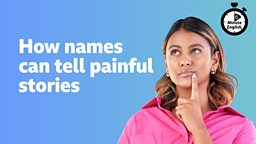
How names can tell painful stories
Episode 240613 / 13 Jun 2024
Could our name have painful baggage?

E-rickshaws driving away pollution
Episode 240606 / 06 Jun 2024
Could E-rickshaws give us cleaner air?

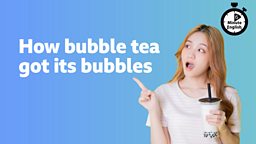

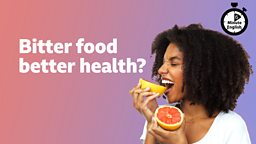
Bitter food, better health?
Episode 240509 / 09 May 2024
Could bitter foods be better for your health?
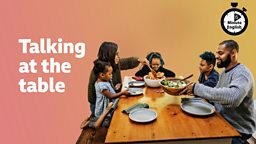


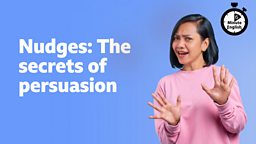

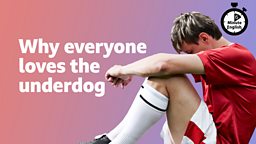

Disability in music and theatre
Episode 240321 / 21 Mar 2024
Learn about the people who are making it easier for disabled musicians and music fans to perform and see live music

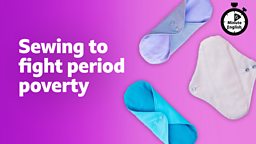
Sewing to fight period poverty
Episode 240307 / 07 Mar 2024
Period poverty affects over 500 million people worldwide. How can a volunteer project help?
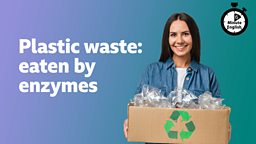
Plastic waste eaten by enzymes
Episode 240229 / 29 Feb 2024
Plastics can be difficult to recycle. Could a recently discovered enzyme help?
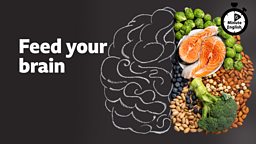
Feed your brain
Episode 240222 / 22 Feb 2024
Food is fuel for our brains. So, what should we be eating?
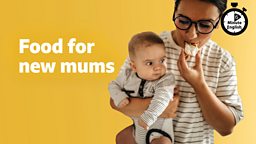
Food for new mums
Episode 240215 / 15 Feb 2024
Having a baby is exhausting! What do mothers need to eat after giving birth?
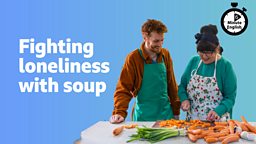
Fighting loneliness with soup
Episode 240208 / 08 Feb 2024
Hear how a project in the Netherlands is helping in the fight against loneliness

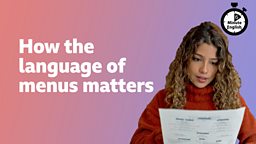
How the language of menus matters
Episode 240125 / 25 Jan 2024
Why is the language used on menus important?
